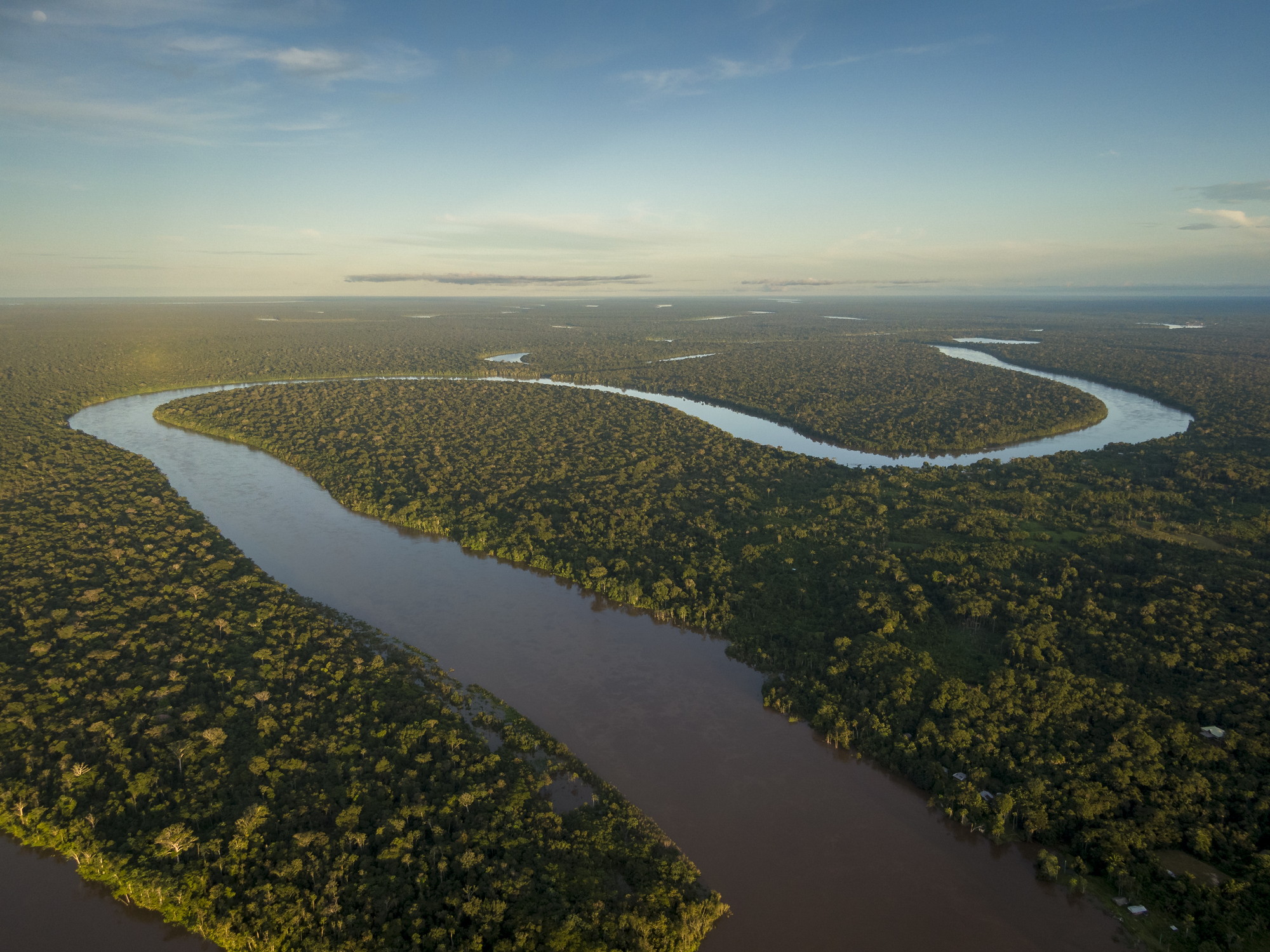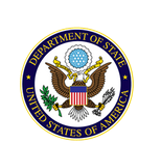Summary
Funded by the U.S. Department of State, Bureau of Educational and Cultural Affairs (ECA), and the Fulbright Commission in Brazil (FBR), the Fulbright Amazonia program provides a platform for scholars to conduct impact- and action-oriented research to foster a healthy, sustainable, and resilient Amazon Basin. Fulbright Amazonia offers grants to established scholars, early- and mid-career specialists, and applied researchers from the United States and eight South American countries – Bolivia, Brazil, Colombia, Ecuador, Guyana, Peru, Suriname, Venezuela – that share the Amazonian rainforest. The selected group of scholars will engage in collaborative thinking, analysis, problem-solving and multidisciplinary research on topics relevant to Amazonian nations’ shared opportunities and challenges.
The Program
The program will take 18 months during which the Scholars will participate in three mandatory plenary sessions and will have to spend a minimum of six consecutive weeks and a maximum of three consecutive months in the United States to do research in a higher education institution, research center, or non-governmental organization.
Selected candidates will receive funding in the total amount of USD$40,000. Scholars are expected to cover all travel costs (stipend, airfare, health insurance, etc.) during the research period in the United States (minimum of six weeks up to three months), as well the airfare of the group meetings. Meals and accommodations for all group meetings will be covered separately. Grants will also include limited accident and sickness benefits.
Co-Lead Scholars
The group of Scholars will engage in individual research while also working in multidisciplinary and multinational collaborative research teams, led by two prominent experts, Dr. Jeffrey Hoelle and Dr. Carlos Valério Gomes.
The Co-Lead Scholars will provide intellectual leadership throughout the Program, in addition to mentoring program participants and facilitating discussion and collaboration among the Fulbright Amazonia Initiative Scholars. Click here to meet all the scholars selected.
Duration and timetable
The Fulbright Amazonia Initiative activities will commence in Summer 2023 and conclude in December 2024. All selected candidates are expected to attend three in-person plenary meetings to develop impactful collaborative projects, undertake an exchange experience in the U.S., and maintain ongoing virtual communication with fellow grantees and Co-Lead Scholars. The research visit must be completed prior to December 2024. The following timetable should guide the Program’s activities:
| December 20, 2022 | Deadline for online applications submission |
| January, 2023 | National Screening review and selection process |
| February, 2023 | International Screening review and selection process |
| March, 2023 | Final approval by the FFSB |
| June, 2023 | First Group Meeting and Orientation, in Brazil |
| April, 2024 | Mid-year Group Meeting, in location to be determined |
| December, 2024 | Final Group Meeting, in Washington, DC |
Meet the 2023-2024 Fulbright Amazonia Scholars
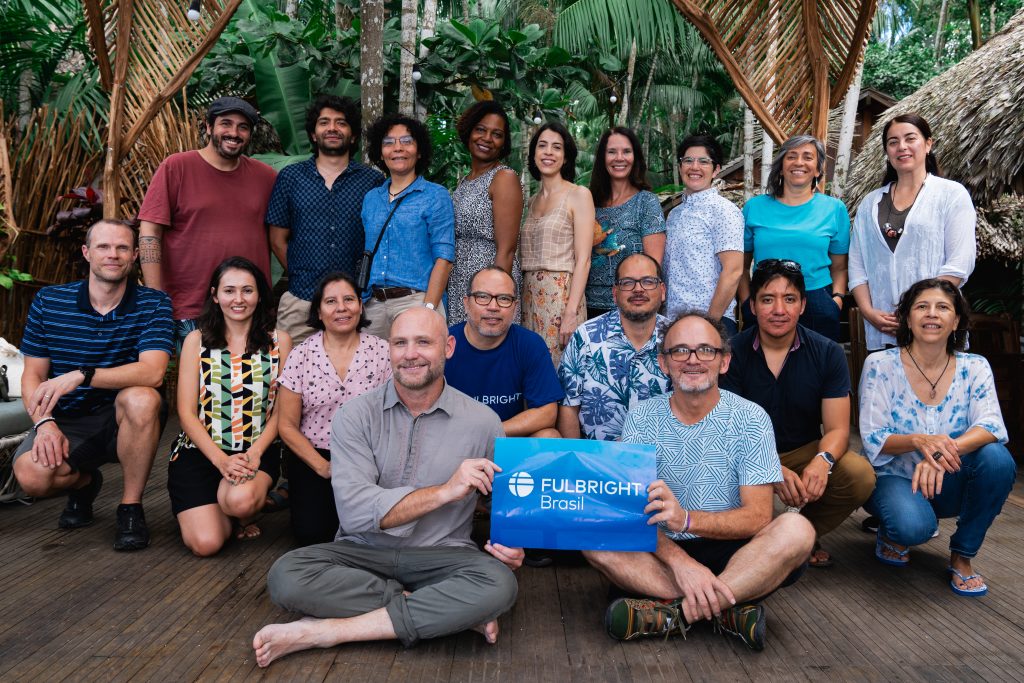
Fulbright Amazonia Co-Lead Scholars
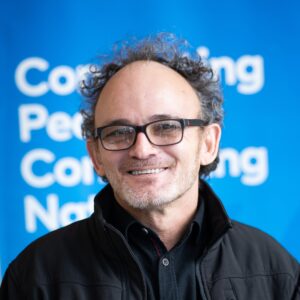
Carlos Valério Aguiar Gomes is a sustainable development practitioner and researcher with almost three decades of experience working in the Brazilian Amazon. Born in Amazonia, he was educated at the Federal University of Acre, and then received his Ph.D. in Geography from the University of Florida, USA. Over the years, he has participated in a range of activities, including collaboration with the Brazilian rubber tappers’ social movement in the development of Extractive Reserves in the 1990s to leading the “Green Municipalities in the Amazon” initiative in 2010. Since 2016, Dr. Gomes is a Professor at the Amazonian Institute of Smallholder Agriculture (INEAF) at the Federal University of Pará in Belém, Brazil. His teaching and research focus on collaborative research, policy-making for sustainable development, programs for supporting smallholder agriculture and extractivist groups, and human dimensions of climate change, among others. At INEAF, he coordinates a specialization aimed at improving skills of professionals and community leaders who work in Conservation Units, Quilombola Territories, and Indigenous Lands.
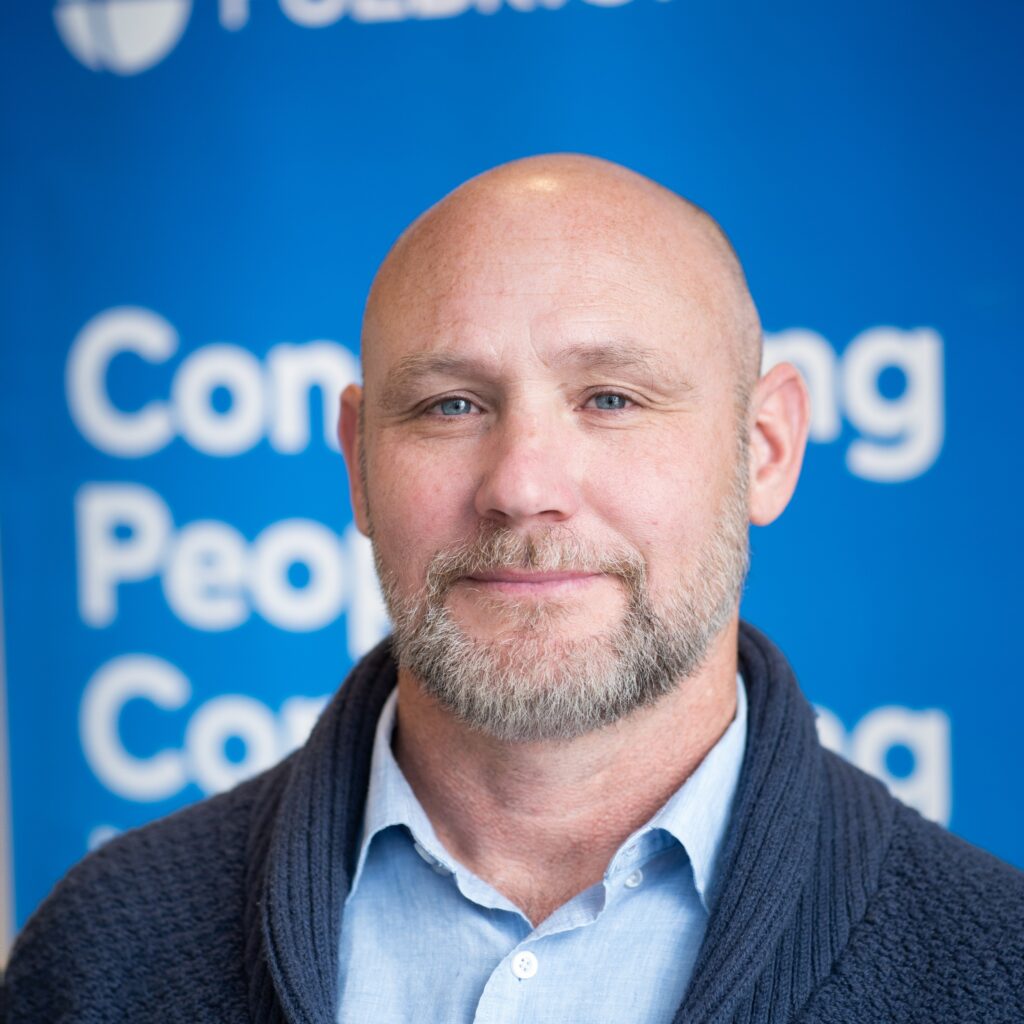
Jeffrey Hoelle is an associate professor in the Department of Anthropology at the University of California, Santa Barbara. His research focuses on human-environment relations in Amazonia, with an emphasis on understanding environmentally impactful practices, such as cattle raising and gold mining. In addition to in-depth ethnographic research on daily life and change along the frontiers of the Brazilian Amazon, Hoelle works on collaborative interdisciplinary projects that aim to understand the interlinked social, political, and economic dimensions of deforestation and land conflict. He is the author of Rainforest Cowboys: The Rise of Ranching and Cattle Culture in Western Amazonia, which won the annual Book Award from the Brazil Section of the Latin American Studies Association in 2016. A former Fulbright Award recipient as a graduate student, Professor Hoelle has published numerous scholarly articles and also shares his research with the public in the U.S. and Brazil through presentations, newspaper articles, interviews, and a public exhibition. The Portuguese-language translation of the book, Caubóis da Floresta, was published in 2021 by the Federal University of Acre Press (EDUFAC). During 2021-2022, Hoelle was a visiting scholar at the Latin American Centre and the Brazilian Studies Programme at the University of Oxford.
Fulbright Amazonia Scholars
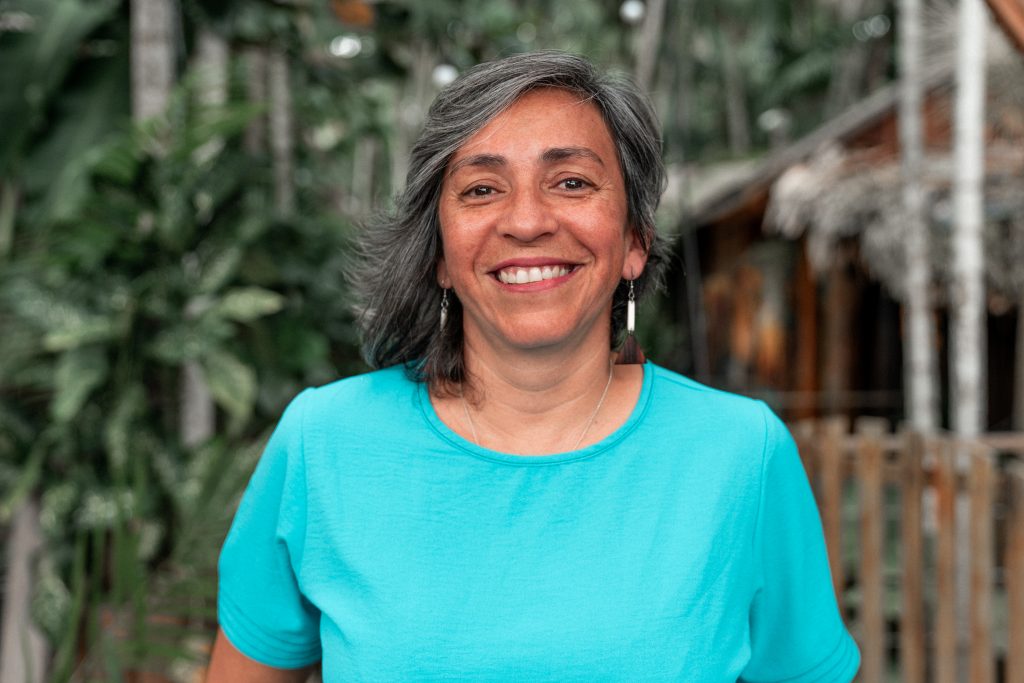
Ane Auxiliadora Costa Alencar, Brazil
Science Director, Instituto de Pesquisa Ambiental da Amazonia (IPAM)
Fulbright Amazonia Scholar in Forest Resources and Conservation
Ane Alencar is the Science Director at Instituto de Pesquisa Ambiental da Amazonia (IPAM), a research based environmental Brazilian NGO that promotes sustainability, healthier environment and social justice in the Amazon. She graduated in Geography from the Federal University of Pará and holds a Master’s degree in Remote Sensing and Geographic Information Systems from Boston University, and a Ph.D. in Forest Resources and Conservation from the University of Florida. For the past three decades, she has been working at IPAM with the dynamics of deforestation, fire and forest degradation in relation to land use and climate change in the Amazon. She coordinates MapBiomas Fire, a comprehensive Brazil burned area monitoring initiative, as well as the Brazil Land Use Change Sector GHG estimate team of the Greenhouse Gas Emissions Estimation System (SEEG) initiative. She is one of the lead authors for the Scientific Panel for the Amazon and was recently listed as one of 14 female world leaders in the field of Machine Learning and Earth Observation by the Radiant Earth Foundation. As a Fulbright Amazonia Scholar, she will have the opportunity to integrate the knowledge of forest degradation by fire with other Pan Amazon countries in order to identify policy opportunities to reduce the impacts on Amazonian forest ecosystems.
Simone Athayde, United States
Associate Professor, Florida International University
Fulbright Amazonia Scholar in Environmental Anthropology/ Bioeconomy
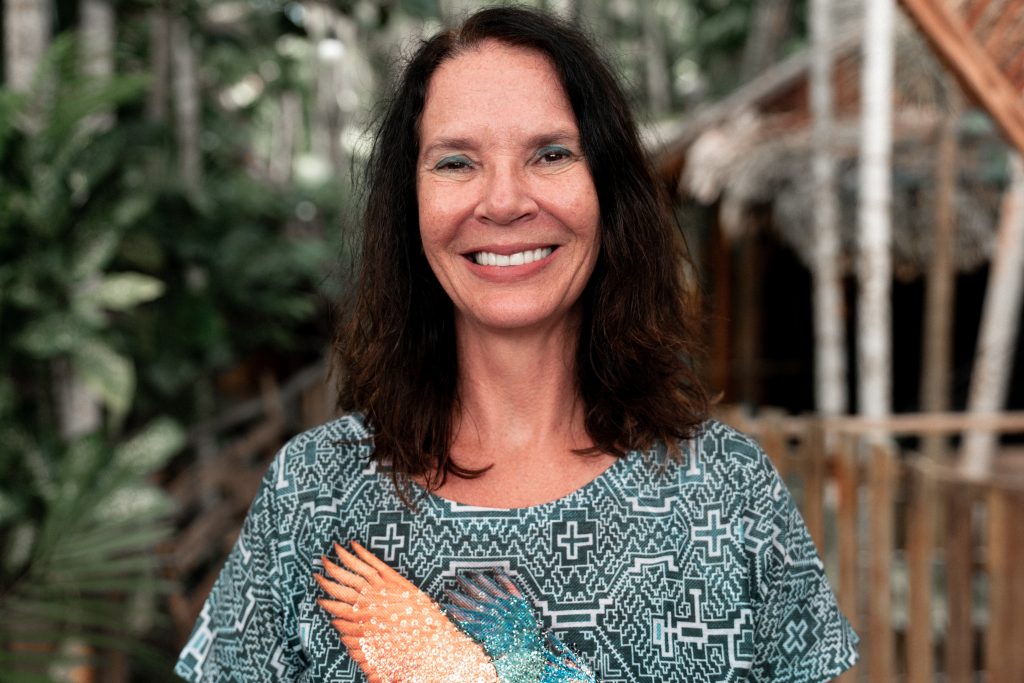
Simone Athayde is an Associate Professor at Florida International University, working with bioeconomy and sustainability clinics in the Amazon. She is an Environmental Anthropologist whose mission is to achieve excellence in connecting inter- and trans-disciplinary research to the science-policy interface to move toward reconciling socio-environmental justice, Indigenous and traditional peoples’ rights, and the conservation of biocultural diversity from local to global scales. Athayde has worked across the Amazonian region for over 20 years, supporting Indigenous peoples and local communities’ self-determination, sustainable livelihoods, and human and territorial rights. At Florida International University (FIU), she has a joint appointment in the Department of Global and Sociocultural Studies and in the Kimberly Green Center for Latin American and Caribbean Studies, under the Steven J. Green School of International and Public Affairs (SIPA), and leads the Biocultural Diversity and Governance Lab, which includes several graduate students. She has played leadership roles at several United Nations and multilateral initiatives, including the Intergovernmental Science-Policy Platform on Biodiversity and Ecosystem Services (IPBES), and the Science Panel for the Amazon (SPA). For her Fulbright Amazonia project, she will partner with the Federal University of Amazonas (UFAM) and work with several actors to support inclusive, fair and sustainable bioeconomy initiatives across the Amazon. She considers the full participation of Indigenous peoples and local communities to be imperative in the development of conceptual, managerial, and policy frameworks for bioeconomy initiatives in the region.
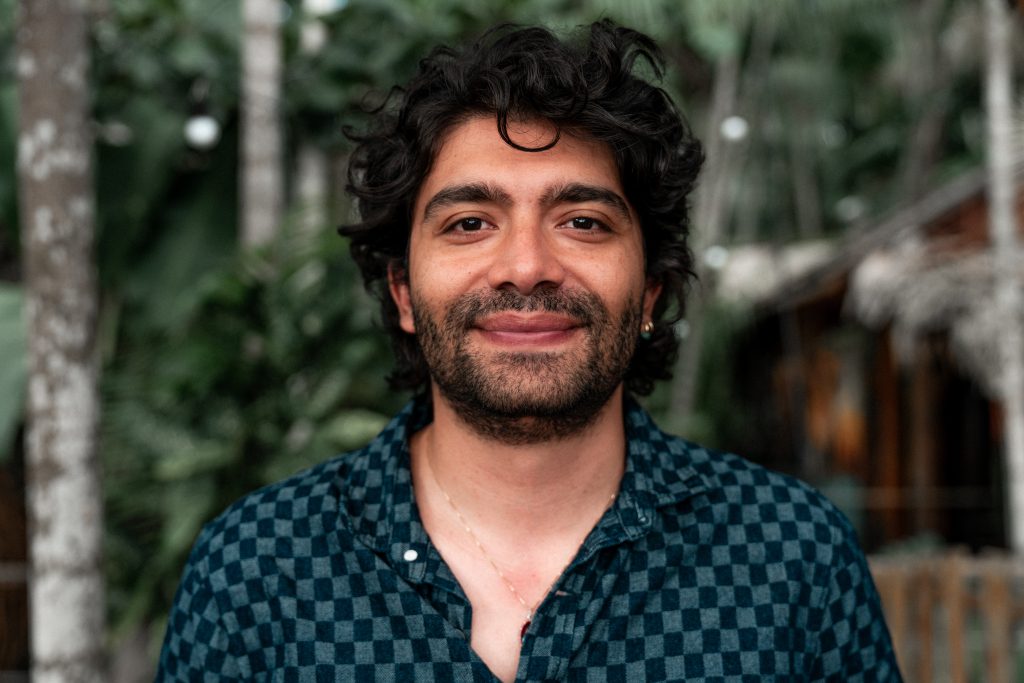
Daniel Bustos Echeverry, Colombia
Researcher and Impact Producer, Vision Three Films and Noname
Fulbright Amazonia Scholar in Visual Anthropology
Daniel Bustos Echeverry is a Colombian Researcher and Impact Producer working for Vision Three Films on visual approaches to Amazonian territories in tension. As a researcher and visual anthropologist, he is interested in the relationship between the Caribbean, the Andes, and the Amazon. He works across academic, music, documentary, and curatorial fields, often combining these within a single project. His albums, books, and films have gained international recognition, winning both a Grammy Award and a Latin Grammy Award, being published by Colombian Ministry of Culture, and forming the basis of social impact campaigns in the United States and Canada. Bustos Echeverry’s experience is anchored in extensive academic research, combining ethnography with his work with communities, the creation of interdisciplinary groups and supporting private and public networks to ensure the project’s impact. Much of his work focuses on recovering and preserving the cultural legacy of under-represented communities. He holds an MA in Visual Anthropology from the University of Manchester, a Specialization in Southern-Epistemologies, and a BA in Philosophy. He is the impact producer of the film ‘Tigre Eléctrico,’ about the Siona indigenous people’s struggle to protect their spiritual and physical territory in the Northwest Amazon. His Fulbright Amazonia project, “Tensions of Territory: a visual approach to the visible and invisible Amazon,” aims to conduct rigorous ethnographic, academic, and participatory research that will be used to create multimedia content to inform public policy in Amazon countries, the United States and Europe.
Hortensia Caballero-Arias, Venezuela
Senior Associate Researcher, Venezuelan Institute for Scientific Research (IVIC)
Fulbright Amazonia Scholar in Anthropology
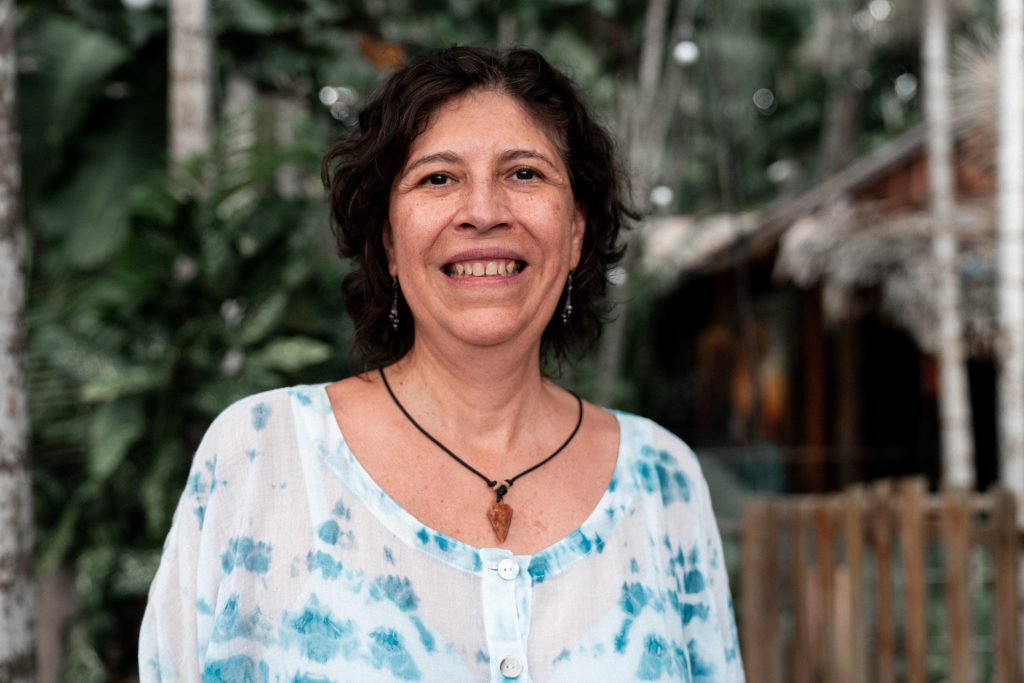
Hortensia Caballero-Arias, from Venezuela, is a Senior Associate Researcher at the Venezuelan Institute for Scientific Research, working with food scarcity and Yanomami food system changes and resilience. Her research areas combine political anthropology, historical anthropology, post-development studies, politics of identity, interculturalism, and indigenous food systems among indigenous peoples of the Amazon Basin in Venezuela and Peru. She is the author of numerous peer-reviewed articles and book chapters, as well as technical reports, participatory community handbooks. She has written three books, including “Desencuentros y Encuentros en el Alto Orinoco: Incursiones en territorio Yanomami, Siglos XVIII-XIX” (2014). Caballero-Arias has done extensive fieldwork with the Yanomami people in the Venezuelan Amazon, focusing on the impact of cultural transformations, indigeneity and political participation, land demarcation, indigenous rights. She has served as a member of the Intergovernmental Committee on Intangible Cultural Heritage of Unesco and the Advisory Council of the Wenner-Gren Foundation, and as an editorial board member of several anthropological journals. She is the president of the Yanomami Foundation, an NGO that supports indigenous self-management projects in the Venezuelan Amazon. Her Fulbright Amazonia research is on anthropogenic and environmental factors, such as the impact of illegal mining, that threaten the Yanomami livelihoods, as well as their food resilience strategies.
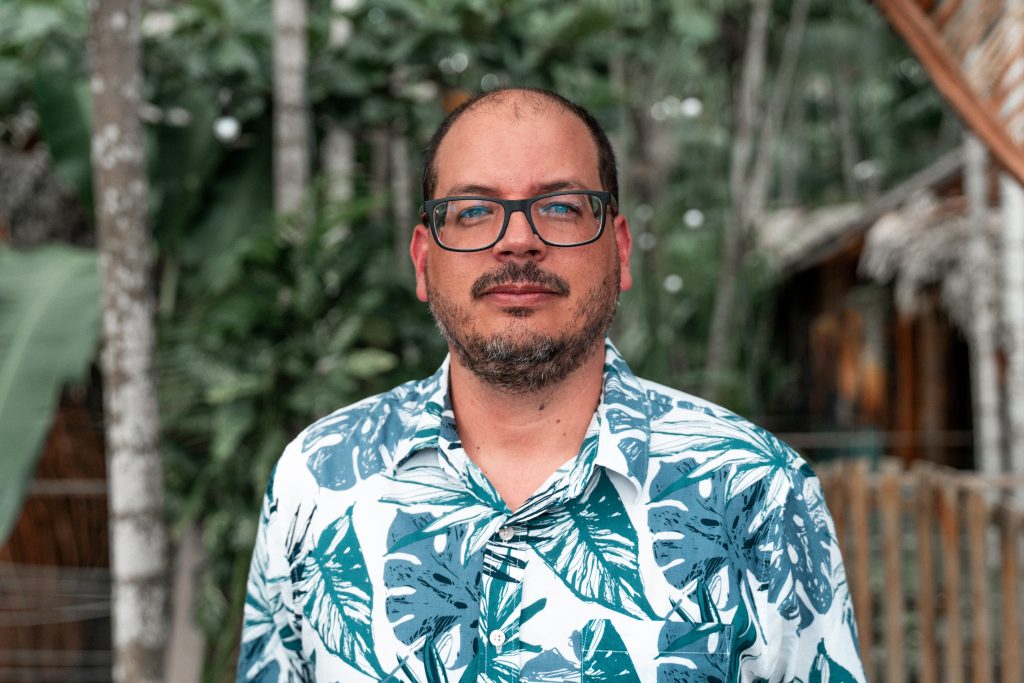
Carlos Del Cairo, Colombia
Professor, Department of Anthropology, Pontificia Universidad Javeriana (Bogotá)
Fulbright Amazonia Scholar in Anthropology
Carlos Del Cairo is a Full Professor at Colombia’s Pontificia Universidad Javeriana, working with Campesinos’ alternatives to environmental degradation. He is an anthropologist specializing in socio-environmental dynamics in the northwest Colombian Amazon, with a BA in Anthropology from the Universidad del Cauca (Colombia), a M.Sc. in Anthropology from the University of Montreal (Canada), and a Ph.D. in Anthropology from the University of Arizona (United States). He has published articles on environmental conflicts among peasant and Indigenous communities and their interactions with development/conservation initiatives promoted by institutions and international cooperation agencies, and has co-edited two books in Spanish entitled “Anthropological perspectives on contemporary Amazonia” (2010) and “Humans, more than humans and non-humans. Critical intersections in Anthropology and Ontologies” (2022). Del Cairo conducts his research at the intersection of multi-layered conflicts, considering the political-economic drivers of such conflicts and their implications in cultural and ontological terms. His Fulbright Amazonia research will explore the alternative practices that campesino organizations propose to manage emergent environmental degradation in a context of post-conflict and climate change in the northwestern Colombian Amazon.
João Vitor Campos-Silva, Brazil
President and Researcher, Instituto Juruá;
Associate Researcher: INPA, UFAL and UFAM
Fulbright Amazonia Scholar in Ecology
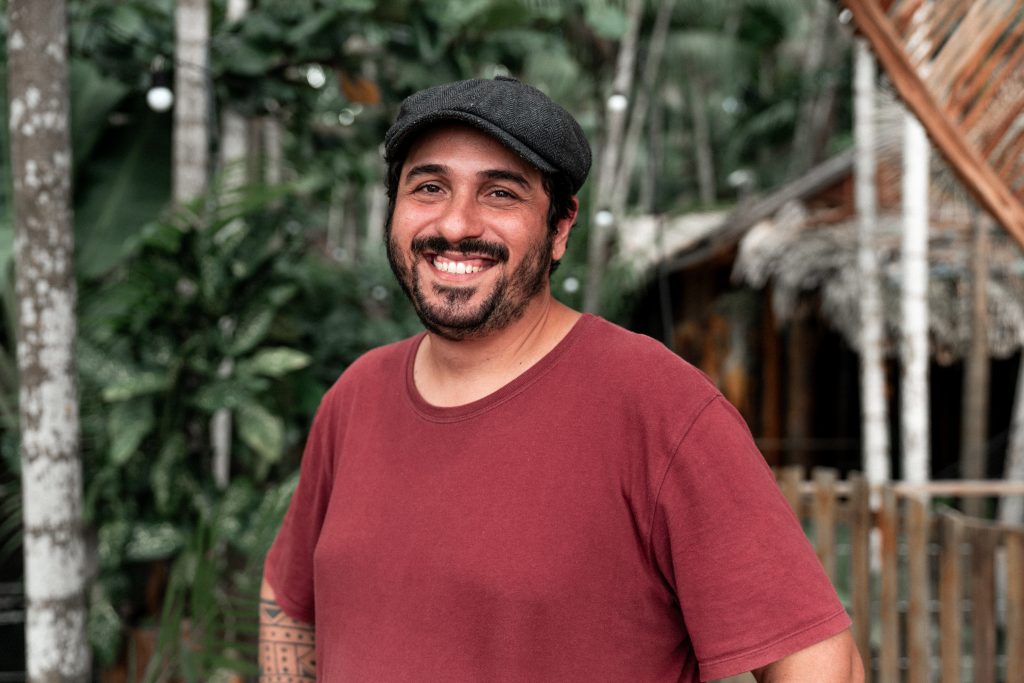
João Vitor Campos-Silva is a Brazilian researcher and President of Instituto Juruá, as well as an associate researcher at several universities in Brazil. Among his research interests is co-designing an Amazonian Bioeconomy concept through Sustainable and socially fair fisheries. He has been working with research and conservation in Amazonia over the last 15 years with a focus on social-ecological systems and the human dimension within conservation. His areas of focus include fishery management, biodiversity-based value chains, sustainability, ecology, Amazonian bioeconomy, environmental governance, and community-based conservation. He believes that conservation solutions working toward a socially fairer and sustainable future for Amazonia should be co-designed with indigenous people and local communities, considering knowledge systems beyond science and ensuring social justice and popular participation in all processes. Campos-Silva is president of Instituto Jurua, an applied science organization created to work closely with local people and social movements. Fulbright Amazonia research will assess the community-based conservation of the giant arapaima to answer important questions regarding the Amazonian bioeconomy, in partnership with local communities. He will explore the impact of those biodiversity-based value chains on the wellbeing of indigenous people and local communities and the contribution of wild-managed fish as an alternative to beef on reducing greenhouse gas (GHG) emissions. He also plans to focus on the main social, cultural, and institutional ingredients ensuring the success of bioeconomy projects, and how the arapaima fishery can inspire an Amazonian concept for Bioeconomy taking into account the social and cultural complexity of this important biome.
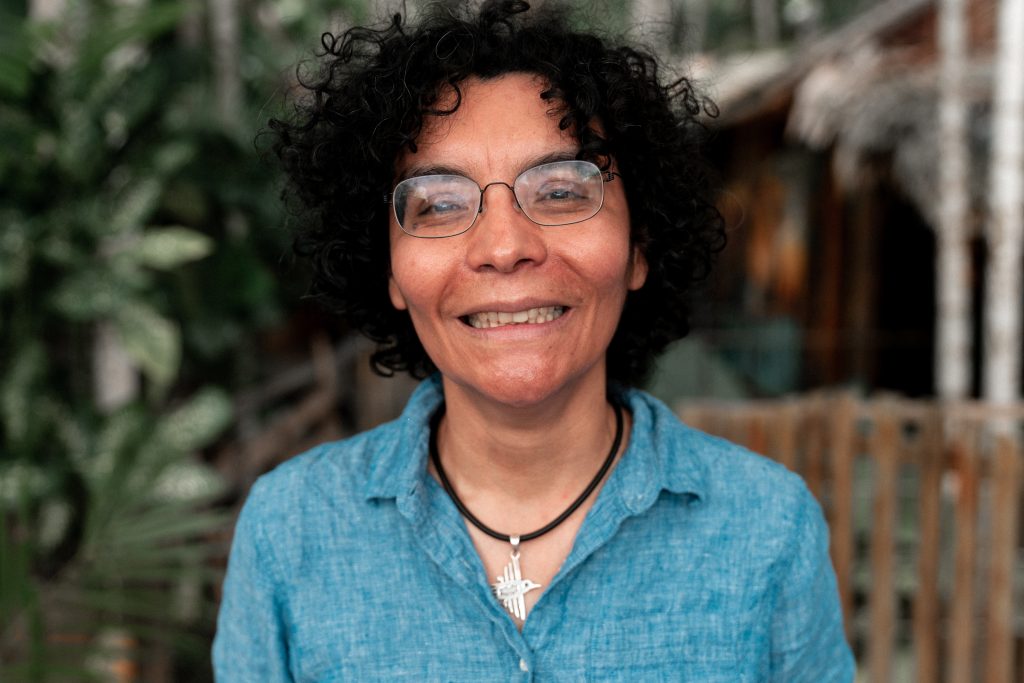
Liliana M. Dávalos, United States
Professor, Stony Brook University
Fulbright Amazonia Scholar in Environmental Science
Liliana M. Dávalos is Professor of Conservation Biology at Stony Brook University (New York). Her research explores how biodiversity changes in time and space, what biological processes fuel biodiversity, and what are the social factors of environmental degradation. Dávalos is a 2012 National Academies of Sciences, Engineering, and Medicine Education Fellow in the Life Sciences and a 2013 Kavli Frontiers of Science Fellow for outstanding early career. She has advised the United Nations Office of Drug and Crime (UNODC) on deforestation in the Amazon-Andes since 2007, and is the author or coauthor of over 100 peer-reviewed journal articles, a coauthor of the 2016 and 2022 UNODC World Drug Reports and a co-editor of two volumes on zoology and environmental science, most recently, Phyllostomid Bats: A Unique Mammalian Radiation (University of Chicago Press, 2020). She serves as director of awards for the Society for Systematic Biologists, Associate Editor for the Society’s flagship journal, Systematic Biology, and Editor in Chief for the Quarterly Review of Biology. For her Fulbright Amazonia research, Dávalos aims to discover how coca production and, especially, drug trafficking contribute to deforestation and land-grabbing dynamics across the western Amazon. Through this work, she hopes to illuminate and help anticipate narco-trafficking as a cross-border, multi-scale market that contributes to environmental degradation and undermines human communities across the region.
Mayra Esseboom, Suriname
Researcher at Centre for Agricultural Research in Suriname (CELOS)
Fulbright Amazonia Scholar in Forestry-NTFPs
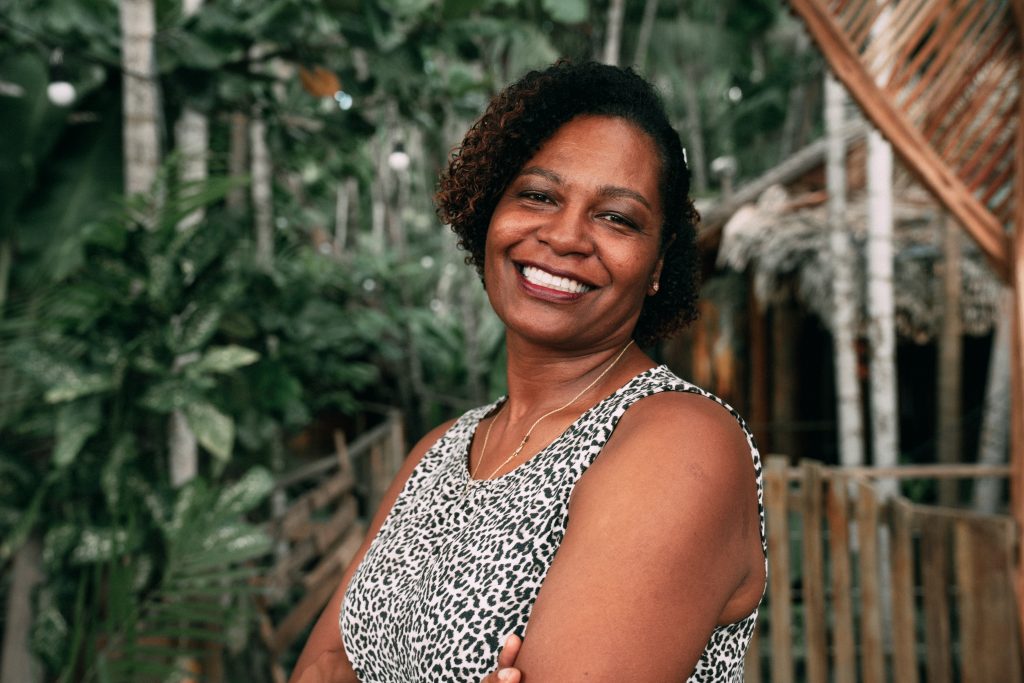
Mayra Esseboom is a Researcher at the Centre for Agricultural Research in Suriname (CELOS). Her research focuses on preparing the Moengo community for a green label for their açaí production system. She graduated in 1999 from the Wageningen University with a MSc. in Agricultural Economics. She has worked for several different organizations dealing with agricultural/forestry and development matters, including as a researcher at the Centre for Agricultural Research in Suriname (CELOS) in the Forest Management department for the past 15 years. Esseboom’s main research focus is Non-Timber Forest Products (NTFPs), exploring commercialization and marketing of NTFPs, preservation of traditional knowledge, and community development. She has produced several popular articles as well as scientific articles and provides advice to policy makers. She mentors and advises students from the University of Suriname (AdeKUS). From 2009 until 2019 she has represented the AdeKUS in the Global Environment Facility/Small Grants Program (GEF/SGP) national steering committee. From 2021-2022 Mayra was the National Liaison Coordinator of the GCF CARICOM AgREADY/IICA Climate Change project for Suriname. For the Fulbright Amazonia program, she will collaborate with the University of Brasilia and local NGOs and Community-based organizations from maroon communities (Afro-Surinamese communities, originally populated and run by people who had freed themselves from slavery). Her research goal is to develop a bioeconomic strategy for the açaí sector in Suriname. The objective is to prepare farmers to implement a sustainable production system in the açaí value chain for export markets.
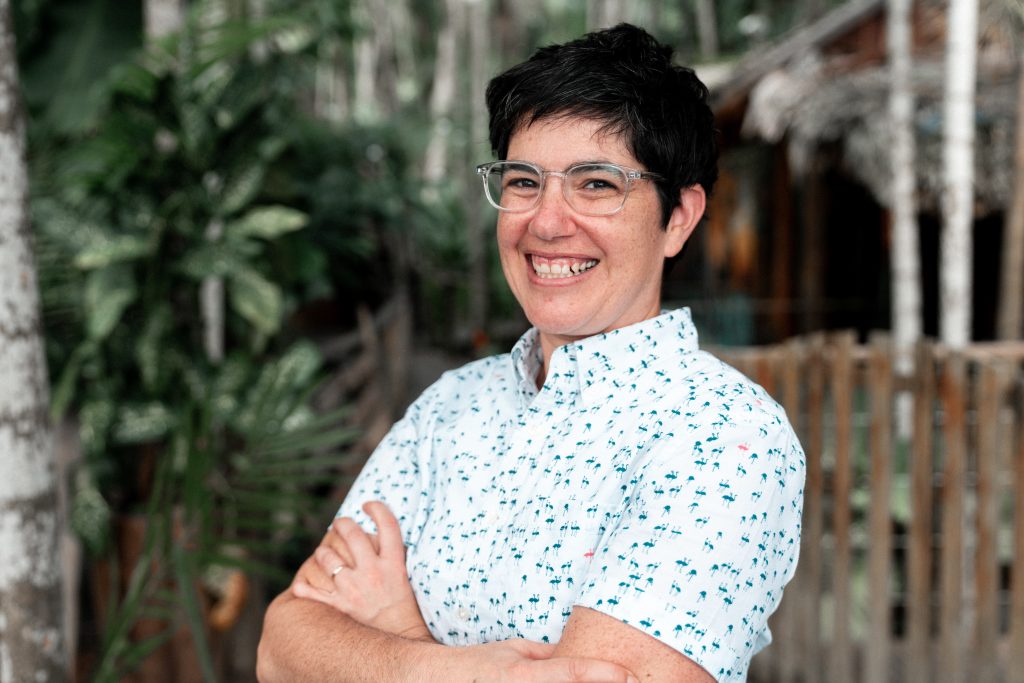
Beth J. Feingold, United States
Associate Professor, University at Albany School of Public Health – State University of New York
Fulbright Amazonia Scholar in Global Environmental Health
Beth Feingold is an Associate Professor at the University at Albany School of Public Health — State University of New York. She conducts research on environmental health risks in the Peruvian Amazon. An interdisciplinary global environmental health scientist, her research addresses the dynamic relationship among the food system, the environment and population health. In addition to being an Associate Professor in the Department of Environmental Health Sciences, she also directs the Undergraduate Program in Public Health and the World Health Organization Collaborating Centre in Environmental Health at the University at Albany School of Public Health. Feingold earned her Ph.D. in Public Health from the Johns Hopkins Bloomberg School of Public Health, her Master of Environmental Science from the Yale School of Forestry and Environmental Studies, her Master of Public Health from Yale School of Public Health and her Bachelor of Arts in Geology from Vassar College. She was the Glenadore and Howard L Pim Postdoctoral Fellow in the Department of Earth and Planetary Sciences at Johns Hopkins University and a Postdoctoral Associate at Duke University’s Nicholas School of the Environment and Global Health Institute. Feingold’s proposed Fulbright Amazonia research builds upon her work in the Southern Peruvian Amazon. It will address the dietary and environmental health risks to children’s cognitive development and how these are related to anthropogenic land use changes, including highway development and artisanal and small-scale gold mining (ASGM).
Juan Pablo Iñamagua, Ecuador
Lecturer, Researcher, Universidad de Cuenca, Ecuador
Fulbright Amazonia Scholar in Agroforestry and Silvopastoral Systems
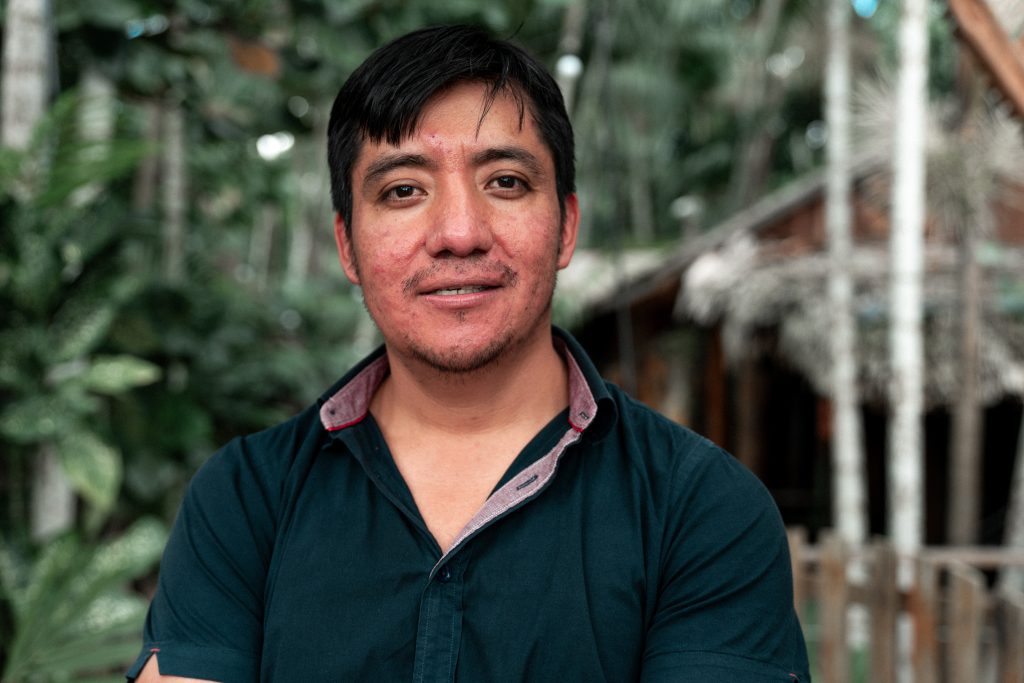
Juan Pablo Iñamagua is a Lecturer at Ecuador’s Universidad de Cuenca, where he works with silvopastoral options for climate change mitigation and connectivity in livestock landscapes. His research focus is on understanding how agricultural landscapes contribute to ecosystem services provision, mainly to biodiversity and carbon sequestration. For this, he uses a participatory approach to identify native tree species of interest and later studies its ecology with the aim of including them in silvopastoral arrangements. He also studies the role of agricultural landscapes on wildlife presence. In his master and doctoral studies, he assessed direct greenhouse gas emissions on dairy farms in Costa Rica and the role of trees in livestock landscapes in the Coastal and Amazon region in Ecuador to account for farm negative emissions. His Fulbright Amazonia research will focus on silvopastoral options for climate change mitigation and how to improve the connectivity between livestock landscapes in the South of Ecuador’s Amazon region. The project aims to map and identify existing silvopastoral practices in the region, and to understand how local governments could support the adoption of these practices through local policies. The project will include different stakeholders and will explore their willingness to adopt silvopastoral practices, by communicating the possible impacts on climate change mitigation and connectivity.
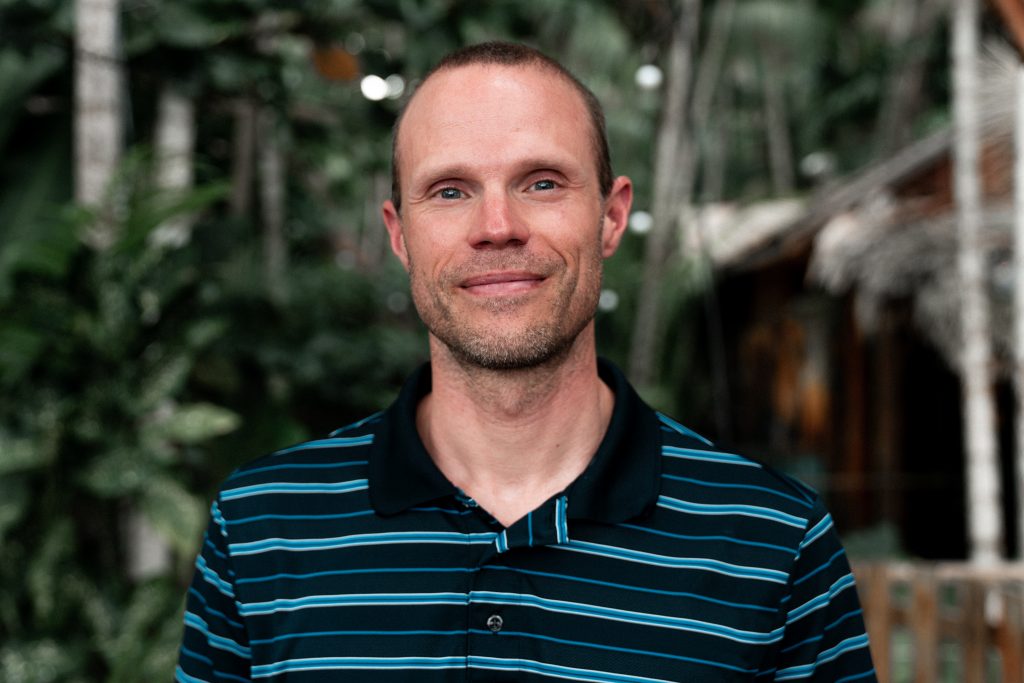
Bradley Olsen, United States
Alexander and I. Michael (1960) Kasser Professor of Chemical Engineering, Massachusetts Institute of Technology
Fulbright Amazonia Scholar in Chemical Engineering
Brad Olsen is currently the Alexander and I. Michael (1960) Kasser chair in Chemical Engineering and the faculty director of the MIT International Science and Technology Initiative (MISTI) Brazil program. He grew up in the Twin Cities before moving to MIT for undergraduate and UC Berkeley for graduate school. After a postdoc at California Institute of Technology, he started at MIT at the end of 2009 as a faculty member in the Department of Chemical Engineering. His research in the area of polymer science focuses on the use of bioprocesses for the design and discovery of new materials, polymer mechanical recycling, polymer biodegradation, and engineering of products from natural materials in addition to work in cheminformatics. Olsen has also been active in technology transfer and entrepreneurship, being an inventor on a dozen issued and pending patents and co-founder of a natural products company in the beauty industry. His goals in Fulbright Amazonia are to develop teaching and research strategies that can help to promote the development of sustainable bioeconomies within the standing forest, providing economic development that is compatible with preservation of this important natural resource.
Rayane Pacheco, Brazil
Associate Researcher, Centro de Inteligência Territorial (CIT)
Fulbright Amazonia Scholar in Environmental Sciences
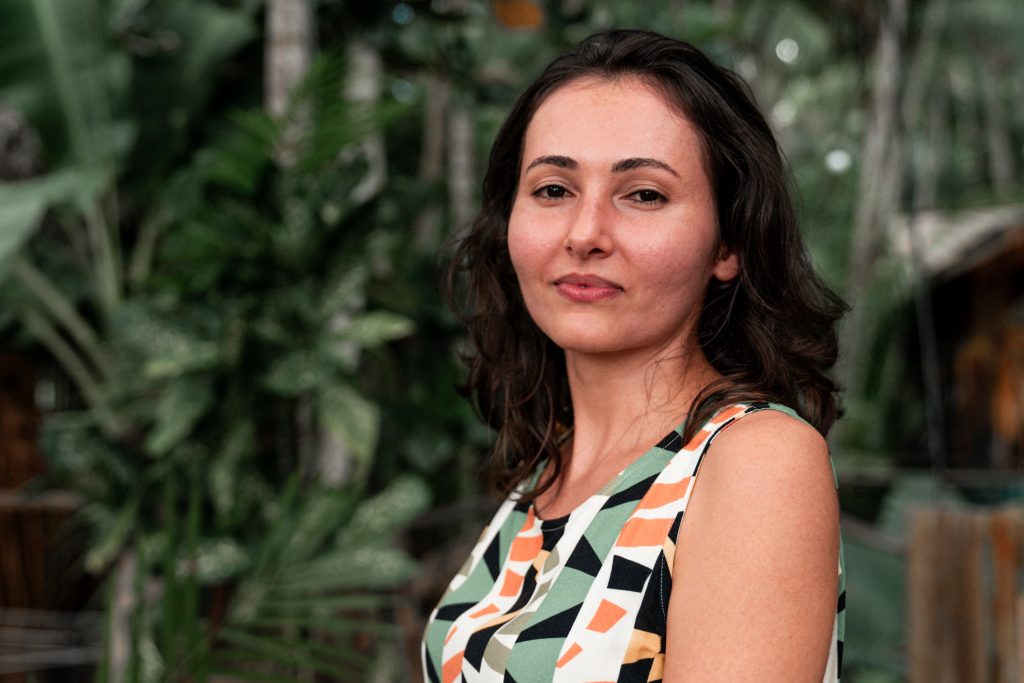
Rayane Pacheco is an Associate Researcher at Centro de Inteligência Territorial (CIT), working with spatial data analysis for conservation law enforcement on rural properties. She is an environmental researcher and geospatial data scientist, with an undergraduate degree in environmental management from the Federal Institute of Education, Science and Technology of Pará (IFPA), a master’s degree in environmental systems analysis and modeling and a doctorate in production engineering from the Federal University of Minas Gerais (UFMG). Pacheco has been working in the frontier of science and technology for the implementation of public policies in the Brazilian Amazon, in particular the Forest Code, the main forest conservation law in Brazil. Currently, she leads the development of methodological approaches for the territorial intelligence tool (CAR 2.0) that automatically assesses the Rural Environmental Registry (CAR) in the states of Pará and Minas Gerais, Brazil, an initiative of CIT in partnership with UFMG. Her Fulbright Amazonia research focuses on the spatial allocation of land for forest restoration to meet forest code requirements on private properties in the Brazilian Amazon.
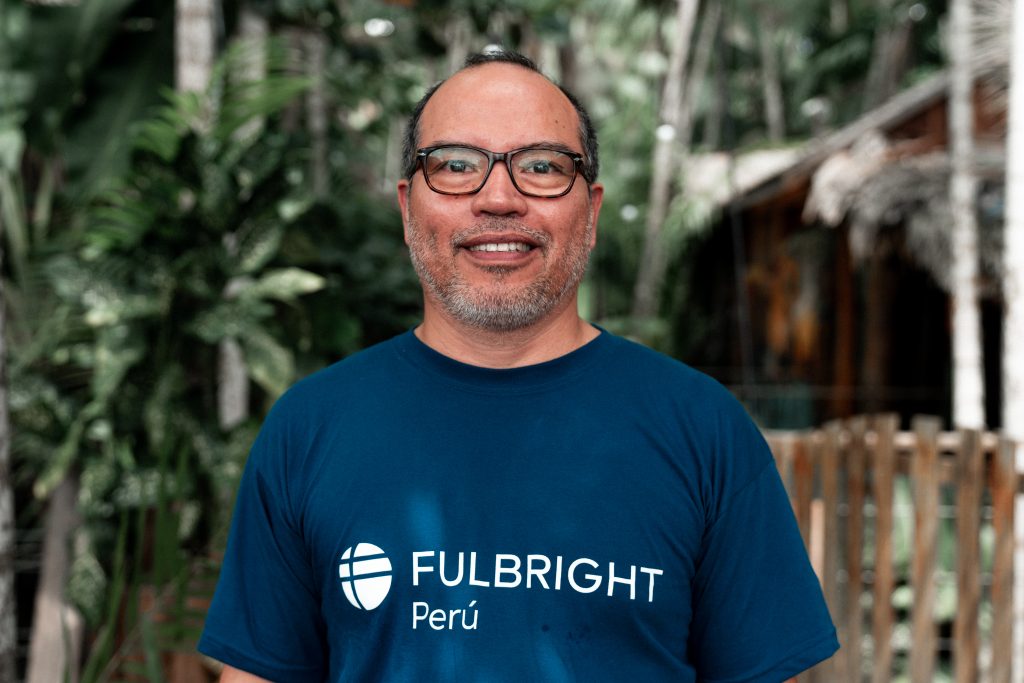
Danny Pinedo, Peru
Associate Professor, Universidad Nacional Mayor de San Marcos
Fulbright Amazonia Scholar in Anthropology
Danny Pinedo is associate professor of anthropology at the Universidad Nacional Mayor de San Marcos in Lima, Peru, where he works with Environmental Governance in the Amazon, with special attention to the participation of civil society in the process. His research explores the interplay between indigeneity, territory, community, and state formation, and the politics of sustainable development, conservation, and the commons in the Peruvian Amazon. He has published several articles and book chapters on these issues and has co-edited two volumes on community-based management of common resources: El Cuidado de los Bienes Comunes (Instituto de Estudios Peruanos, 2002) and El Manejo de las Pesquerías en Ríos Tropicales de Sudamérica (Mayol Ediciones, 2008). At San Marcos University, he has served as chair of the Department of Anthropology and director of the Instituto Seminario de Historia Rural Andina and has created a Laboratory of Amazonian Ethnography. For more than 20 years, Pinedo has worked as a facilitator, advisor and researcher in projects promoting the management of natural resources, tenure security of forest-dependent communities and the protection of Indigenous people in isolation and initial contact. For the Fulbright Amazonia program, he aims to explore the factors that may increase environmental governance performance in the Peruvian Amazon, with a goal of informing and influencing better environmental policies and empower marginalized groups.
Sabina Ribeiro, Brazil
Associate Professor, Federal University of Acre (UFAC), Forest Health Consortium
Fulbright Amazonia Scholar in Forestry
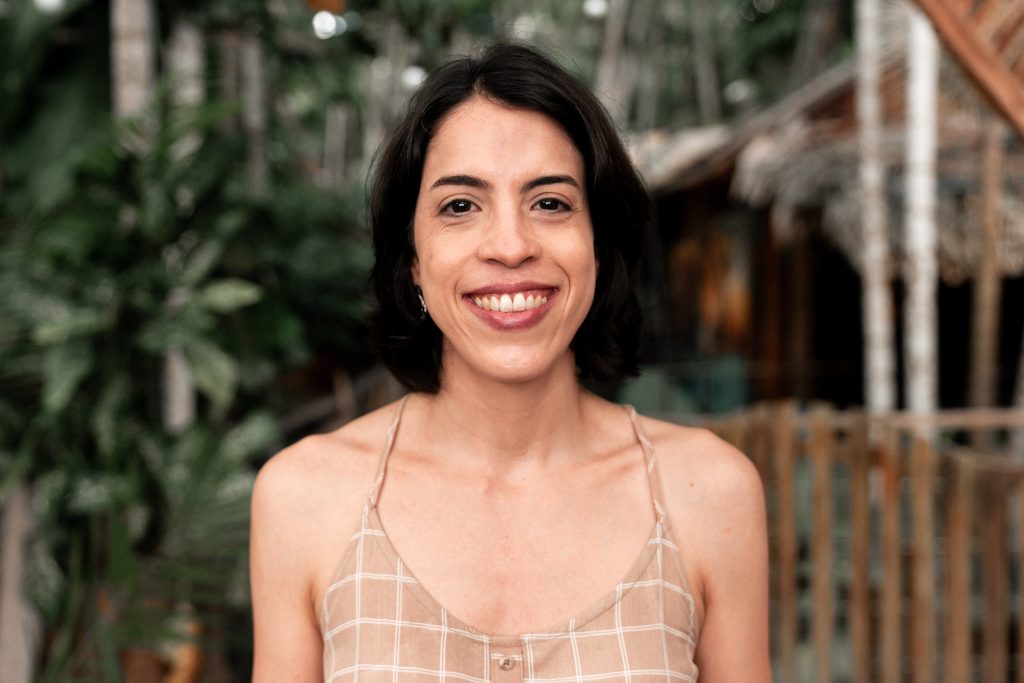
Sabina Ribeiro is an associate professor at the Federal University of Acre. She graduated from the University of Brasília (UnB) and holds a Master’s and Doctorate in Forest management from Federal University of Viçosa (UFV). Her research has focused on the quantification of forest biomass and carbon stocks in the Atlantic forest, Cerrado (savannah) and Amazonia. She has also done applied research related to public policies concerning climate change. Ribeiro was PI on a 5-year NSF/USAID PEER “Forest Health Project” that included capacity building with extractive communities in Acre. Currently, Ribeiro is conducting research on forest dynamics in mature and secondary forests under the Prodigy project / Forest health consortium. She also leads the environmental work group of a project approved under the Amazonia+10 Initiative. Ribeiro’s Fulbright Amazonia project aims to disseminate scientific knowledge about climate change causes, adaptation and mitigation to traditional communities, mainly extractivists, as a way to foster sustainable development and reduce social inequalities in the state of Acre.
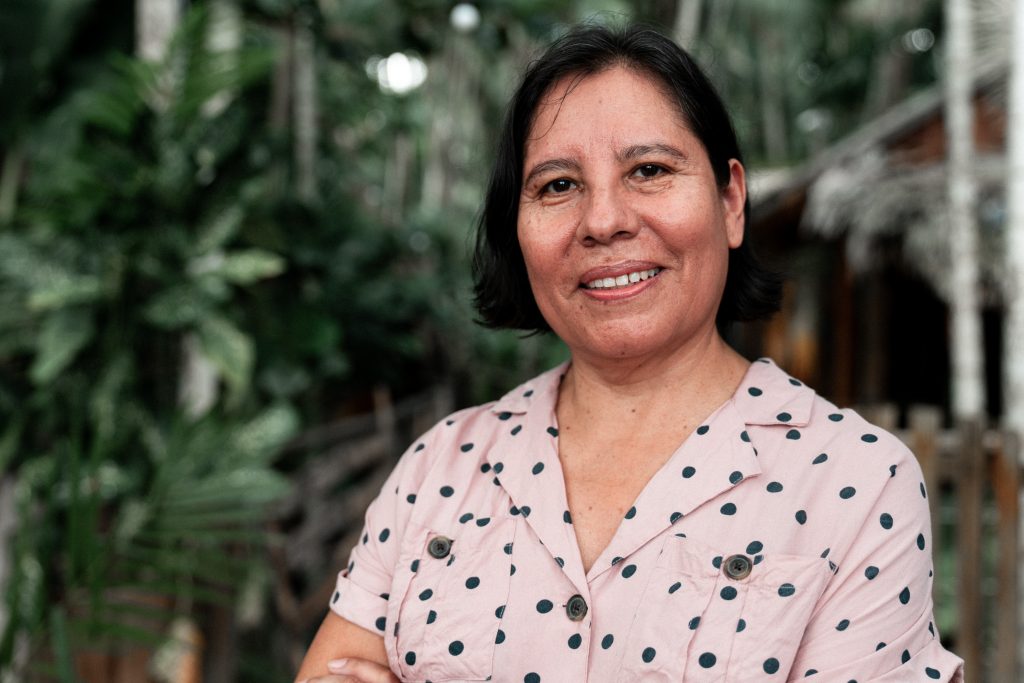
Galia Selaya, Bolivia
Researcher, Forest Health Consortium, ECOSCONSULT-PRODIGY
Fulbright Amazonia Scholar in Environmental Studies
Galia Selaya is a Bolivian scientist with a Ph.D. in plant ecology and biodiversity. She is a researcher at the Forest Health Consortium-PRODIGY-BMBF project working with approaches to climate change in southwestern Amazonia through the lens of the theory of change. She focuses on anthropogenic drivers, wildfires, and climate change impacts on forests’ health and biodiversity functions in the tri-national region at the border of Bolivia (Pando), Peru (Madre de Dios), and Brazil (Acre). Previously, as a postdoc at the University of Florida, National Science Foundation project, she studied the synergetic dual economic and ecosystem services roles of species such as the Brazil nut tree (Bertholletia excelsa). Selaya conducts a multitemporal and multifactorial vegetation analysis from a network of permanent plots and remote sensing imagery. She works collaboratively with members of indigenous communities, forest dwellers, and stakeholders to monitor changes in forest carbon, productivity, and species resilience traits. She bridges participatory action research, scientific evidence, and citizen science for a diversified low-carbon emission economy and forest governance to address the anthropogenic and climate change threats to the Amazonian socio-ecological system. Her publication portfolio includes articles in ecology, society, and sustainability journals and multimedia outreach products for forest management and conservation.
Paola Alejandra Torres-Slimming, Peru
Professor, Universidad Peruana de Ciencias Aplicadas(UPC)
Fulbright Amazonia Scholar in Social Epidemiology and Rural Remote Health
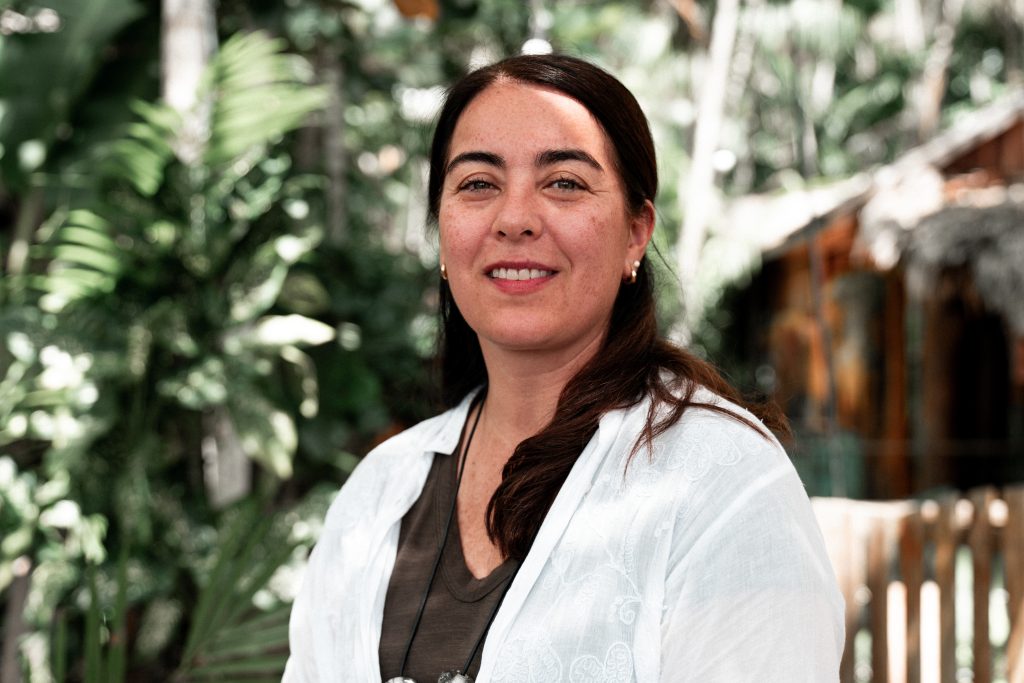
Dr. Torres-Slimming is a trained MD, Ph.D. in Perú with more than 15 years of experience working in rural health, particularly Indigenous communities such as Ashanikas, Shipibo-Conibo, and Shawi, leading the Regional Coordinator observatory “Vulnerable populations, Indigenous populations and Afrodescendant populations- RED ALEC-Université de Limoges.” She works in research and medical education, using Ecohealth and One-Health principles. As a Research Associate Professor at Universidad Peruana de Ciencias Aplicadas, she works with Indigenous Amazon leaders’ perspectives on water, sanitation and climate change.

